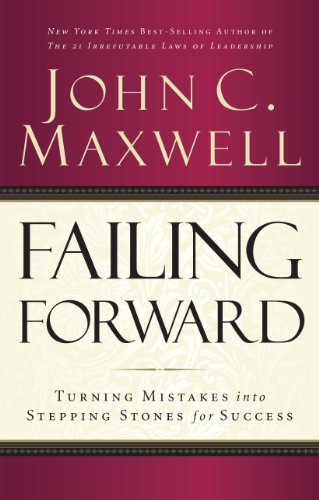
Are some people born to achieve anything they want while others struggle? Call them lucky, blessed, or possessors of the Midas touch. What is the real reason for their success? Is it family background, wealth, greater opportunities, high morals, an easy childhood?
New York Times best-selling author John C. Maxwell has the answer: The difference between average people and achieving people is their perception of and response to failure.
Most people are never prepared to deal with failure. Maxwell says that if you are like him, coming out of school, you feared it, misunderstood it, and ran away from it. But Maxwell has learned to make failure his friend, and he can teach you to do the same.
“I want to help you learn how to confidently look the prospect of failure in the eye and move forward anyway,” says Maxwell. “Because in life, the question is not if you will have problems, but how you are going to deal with them. Stop failing backward and start failing forward!”
The author of 24 books on maximizing personal and leadership potential, John C. Maxwell believes “the difference between average people and achieving people is their perception of and response to failure.” In Failing Forward, he offers inspirational advice for turning the difficulties that inevitably arise in life into stepping stones that help you reach the top. Noting that star performers are often those who aggressively push forward after encountering adversity, Maxwell shows how a variety of well-known and not-so-well-known people have forged ahead despite obstacles that could have derailed them. They include: Mary Kay Ash, who founded her cosmetics firm against enormous odds when the direct-sales company she toiled in for 25 years resisted her continued corporate climb; Truett Cathy, who lost two brothers (and business partners) in an airplane crash and experienced his own serious medical problems before establishing the Chick-fil-A fast-food chain; Greg Horn, who reopened his Kentucky grocery store just 21 days after it suffered $1 million in flood damage; and Beck Weathers, who lost his nose, half of one arm, and the fingers on his other in the infamous 1996 Into Thin Air Mt. Everest tragedy, but now takes a positive message of survival and conquest to audiences around the world. –Howard Rothman